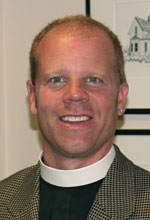7 February 2015
My dear brother and sisters,
Yesterday, the Supreme Court of Canada issued a deeply disappointing decision striking down Canada’s existing Criminal Code prohibition on euthanasia and assisted suicide, declaring these to be constitutional rights. The unanimous decision gave Parliament 12 months to legislate restrictions if it so chooses.
You can read an analysis of the decision on the Association for Reformed Political Action Canada website. And the Evangelical Fellowship of Canada’s response is on its website.
As the issue has been presented by media in more palatable terms and with compelling personal accounts, public opinion has changed in recent years. So while the decision will be widely applauded, the rationale for Canada’s historic legal prohibition of euthanasia and assisted suicide is largely ignored.
Like previous legal decisions that have undercut the Judeo-Christian moral foundation of our society, this decision favours the few who have politically powerful advocates and who’s stories have been given high profile in the media; but it ignores the harm that may come to the many who are politically weak, physically vulnerable, and have few if any advocates.
In anticipation of this decision, Father Raymond de Souza wrote in the National Post, “that to embrace euthanasia and suicide as constitutional rights involved three revolutions in jurisprudence: i) abandoning the legal principle that every life is always a good to be protected, ii) embracing the idea that suicide is a social good, and iii) removing the particular obligation of the law to protect the weak and vulnerable.”
Citing the experience of Belgium where euthanasia and assisted suicide were legalized in 2002 and where the safeguards have rapidly eroded and the categories of those eligible have grown to the point that even children can now be euthanized, Father de Souza, expects that soon “we will hear positive reviews from the telegenic advocates of expanding the number of suicides and people euthanized in Canada. They will have compelling stories to tell. We will not hear from those who have no advocates – the isolated elderly, alone with no one to speak for them, judged to be burdensome to our health system. The disabled who will now wonder if their doctors are coming with counsels of death do not have fashionable advocates. The truly weak and vulnerable, the exploited and abandoned, do not hold press conferences. The Charter becomes a tool of the powerful against the weak, much like medicine will increasingly become in the age of euthanasia and suicide.”
Rather than give in to despair however, we Christians have constructive options. We can pray and we can act.
In fact, we ought to pray and act because, in the Bible, we know that Jesus saw death not as a friend to be embraced when there is great pain, but rather as an enemy to be destroyed. The One who came to conquer death said: ”
The thief comes only to steal and kill and destroy. I came that they may have life and have it abundantly.” John 10:10 (ESV)
How then should we pray?
- Pray that our elected leaders will carefully craft legislation imposing stringent limits on euthanasia and assisted suicide and that these will be scrupulously monitored and enforced. The “ball” is now in Parliament’s court; if Parliament fails to act, the result could be one of the most unrestricted euthanasia regimes in the world.
- Pray for our physicians and their governing bodies. Pray that no physician or other healthcare worker would ever be required to participate in euthanasia or assisted suicide against his or her conscience.
- Pray for the vulnerable – the elderly, the socially isolated, the depressed, the ill – that they would have loving advocates to encourage, care for, and protect them.
How can we act?
- Write to parliamentarians encouraging them to put in place stringent laws governing euthanasia and assisted suicide, laws which will provide maximum protection for the vulnerable, and absolute protection for medical professionals whose conscience will not permit them to be associated in any way with euthanasia or assisted suicide.
- Work to ensure that high quality, compassionate palliative care is available so those suffering terminal illness will be well cared for and able to live out their natural lifespan with dignity and minimal pain.
- Become involved as individuals and as churches in caring for and advocating for the vulnerable, the elderly, the lonely, the disabled, and the physically and mentally ill. By becoming engaged in their lives, we can help people who otherwise might be attracted to death, choose life instead.
- Be bearers of the Good News. People need to know that they are not accidents of evolution, but were created by an infinitely wise, loving God who treasures them, and has given them inherent dignity and immeasurable value. They desperately need to be introduced to our Saviour who offers them unconditional love, forgiveness and spiritual wholeness. And they need to know that we too care for them and will walk with them.
- Become actively involved in Anglicans for Life Canada or Anglicans for Life (US). Physicians can connect with Canadian Physicians for Life.
Because He lives and death is defeated,

Like this:
Like Loading...
The Anglican Church of Canada should continue to focus on providing pastoral care to people who are considering medical assistance in dying (MAID), not on opposing the law, says Archbishop Linda Nicholls, primate of the Anglican Church of Canada.


 From
From  The local vicar was on hand, perhaps to deliver a sermon in hope of hastening the couple’s exit:
The local vicar was on hand, perhaps to deliver a sermon in hope of hastening the couple’s exit: